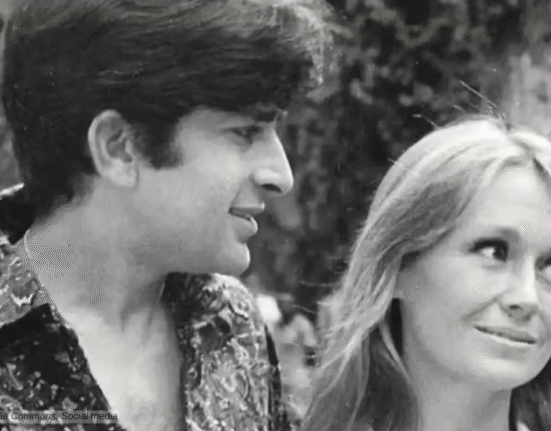David Lynch was a visionary filmmaker, visual artist, musician, and actor known for his enigmatic and surreal approach to storytelling. Famous for his surrealist films and unique cinematic style, Lynch’s work often defied conventional storytelling, blending the mundane with the macabre to create a dreamlike experience.
It’s better not to know so much about what things mean or how they might be interpreted or you’ll be too afraid to let things keep happening. Psychology destroys the mystery, this kind of magic quality. It can be reduced to certain neuroses or certain things, and since it is now named and defined, it’s lost its mystery and the potential for a vast, infinite experience.
David Lynch
Lynch’s films are absurd, surreal, disturbing, horrific, beautiful, tragic, dramatic, and euphoric all at the same time. An unnerving energy is present in almost every frame, and almost no work is identical to the other. His background as a painter served as a great influence in making him a unique filmmaker.
Early Life

David Keith Lynch was born on January 20, 1946, in Missoula, Montana, to Donald Walton Lynch, a research scientist, and Edwina “Sunny” Lynch, an English language tutor. His family moved frequently due to his father’s job, exposing Lynch to various American landscapes and cultures. He attended the School of the Museum of Fine Arts in Boston and later the Pennsylvania Academy of the Fine Arts, where he began experimenting with film.
Lynch’s early ambition was to become a painter, but his fascination with moving images led him to create his first short film, Six Men Getting Sick (Six Times) (1967), a 57-second experimental piece that combined painting and animation.
David Lynch – The Cinamatic Journey
Lynch started his career with the cult classic “Eraserhead” in 1977. He then made one of his greatest works, the biographical drama “The Elephant Man (1980).” The film tells the story of Joseph Merrick, a severely disfigured man in Victorian London. The film received eight Academy Award nominations.
Among his many films, Blue Velvet (1986) stands out as one of Lynch’s most iconic works. The film’s exploration of the sinister undercurrents in a seemingly idyllic town, combined with its striking visuals and haunting score, cemented Lynch’s reputation as a master of surrealist cinema. One of his another significant film is Mulholland Drive (2001). A complex and enigmatic narrative that has been hailed as one of the greatest films of the 21st century.



In 1990 he made Wild at Heart which earned the Cannes Film Festival’s Palme d’Or. He made an adaption of the Frank Herbert’s novel Dune in 1984. His other notable films include “Lost Highway (1997); “Inland Empire (2006); and the iconic TV series “Twin Peaks.”



David Lynch’s filmography is extensive and includes both feature-length films and short films. His works are characterised by their surreal imagery, meticulous sound design, and often disturbing themes. His narratives often delve into the subconscious, blending the ordinary with the bizarre to create a distinctive Lynchian atmosphere.
David Lynch – The Artist
Apart from filmmaking, Lynch is a prolific painter and musician. His studio albums include BlueBOB (2001), Crazy Clown Time (2011), and The Big Dream (2013)). His artistic endeavors reflect the same dreamlike quality found in his films, creating a seamless connection between his various forms of expression. He has written the books Images (1994), Catching the Big Fish (2006), and Room to Dream (2018).
A trained painter, Lynch, has stated that “all my paintings are organic, violent comedies. They have to be violently done and primitive and crude, and to achieve that, I try to let nature paint more than I paint.”

Lynch has said his work is more similar to that of European filmmakers than American ones, and that most films that “get down and thrill your soul” are by European directors.He has expressed his admiration for Federico Fellini, Jean-Luc Godard, Ingmar Bergman, Werner Herzog, Alfred Hitchcock, Roman Polanski, Jacques Tati, Stanley Kubrick, and Billy Wilder.
Le Blanc and Odell write, “His films are so packed with motifs, recurrent characters, images, compositions, and techniques that you could view his entire output as one large jigsaw puzzle of ideas.” Key themes and motifs in his films are “Dreams and Dreamlike Imagery,” “Magic Realism,” “Industrial & Mechanical Sounds and Images,” “Shadows,” “Criminal Underbellies of Society and Cities,” “characters with multiple, fractured identities and personalities,” and “characters with supernatural or omnipotent qualities.”
Interesting Facts
Lynch was a lifelong practitioner of Transcendental Meditation and credited it with fuelling his creativity.
He was offered the chance to direct Star Wars: Episode VI – Return of the Jedi but turned it down. Lunch feels that it would be more George Lucas‘s vision than his own.
He directed commercials for Dior, Gucci, and even the NYC Department of Sanitation. Lynch’s daily weather report videos became a quirky staple on social media.
Personal Life
David Lynch was married four times and had four children, including filmmaker Jennifer Lynch. His relationships often influenced his work, and he maintained close collaborations with many of his partners. Lynch passed away on January 15, 2025.
Lynch’s influence extends beyond cinema, shaping the landscape of contemporary art and inspiring a generation of storytellers. With his characteristic blend of mystery, darkness, and beauty, David Lynch remains a cinematic auteur whose work continues to challenge, provoke, and fascinate audiences worldwide.
David Lynch on IMDB














Leave feedback about this